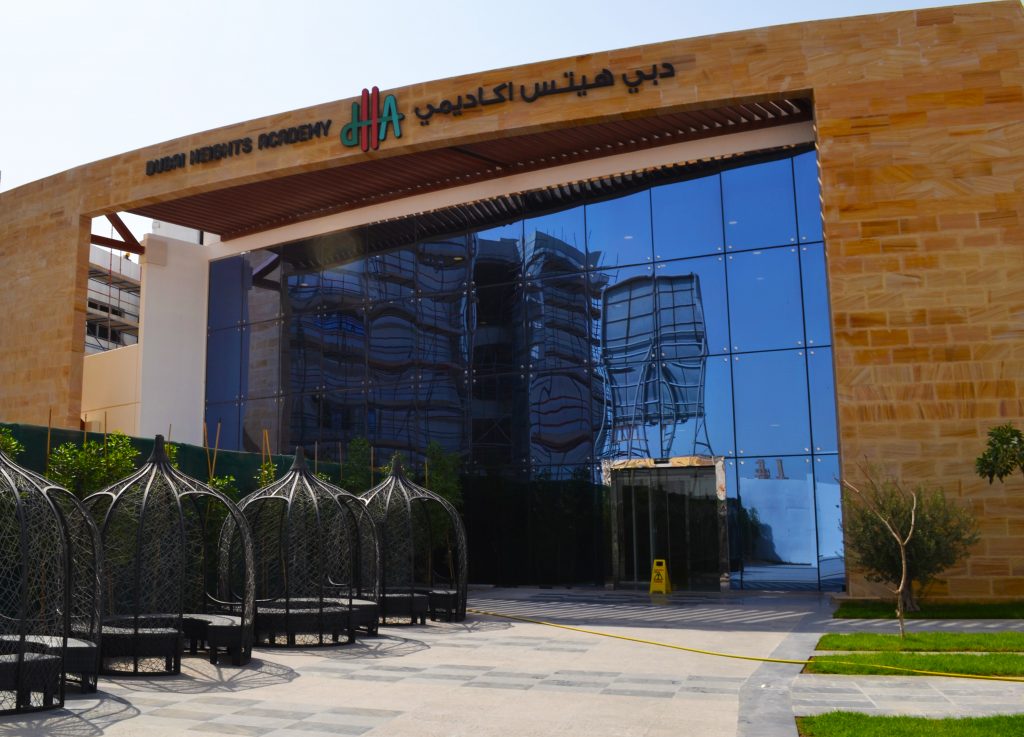Homework. Too Much. Too Little. A Guide for Struggling Parents and Students.
Background – Dubai Bans Homework in Public Schools to Give Children “A Life Outside School”.
The debate on the benefits of homework has become a passionate one, pupils and parents claiming it is placing too much a burden not only on students, but parents and family life too. Many parents contact us saying that their children are no longer able to enjoy their childhood and growing up.
With so many curricula across the UAE and in turn, a variety of teaching methodologies and philosophy, there seems to be as many degrees of homework time expected by schools as the number of schools themselves.
Schools too, do not agree on the best approach. So how are parents supposed to have an objective view beyond the pressure of choosing a school and then accepting what they have let themselves in for?
This week, Dubai’s Ministry of Education has announced that it is now banning homework altogether in 256 of its schools.
The headline, from the National, could not have captured the stakes more strikingly:
“Dubai Schools Drop Homework So Children Can have a Life”
The expectation, in this courageous and radical move by the government, is that homework should now be incorporated into the school day.
Under-reported, this is, in our view, a major intervention in an issue that for parents, schools and children is seen as hugely important, is hugely important.
In an ideal world, how many of us would choose to bring work home? The impacts on home life on us, as adults, of not having a clear dividing line between work and home are well documented. So why do we inflict this on our children?
Some private schools already minimise homework, others are altogether more entrenched in their view that to get the grades children should work every hour of the day and night.
Conversely, should we stop children who want to study, studying at home?
Homework worries – for parents and students – can cause rows, upset, pressure, a spiralling and competitive keeping up with the Joneses, feelings of inadequacy, and time stripped from a child’s life that could be spent with their family and friends. Homework can be a Trojan Horse into family life bringing upset into a place of safety, joy and an equally important place of learning.
- Who is right?
- What is the future of homework?
- How should parents, and students, respond to these pressures?
- How are, and should, schools be responding?
In this guide, we ask whether school and family life should now be formally separated across UAE schools so that all “homework” is completed at school. The result? Home would mean home and not the often uncomfortable, arguably unnecessary and intrusive extension of school.
Is Homework Necessary? What the Research and Different Curricular Schools Tell Us.
1. The US Model of Homework.
In the US, the National Education Association guidelines still follow the research of Harris Cooper from 2006 at Duke University.
Harris Cooper found evidence of a positive correlation between homework and student achievement. Students, he argues, perform better in school if they have prepared for it through homework the night before.
However, his verdict was not absolute. He found little evidence that children, before Senior School, saw the same degree of benefit.
Several other studies have found similar results.
In the US, the current consensus is to follow ‘the 10-minute rule’. This suggests that pupils should have the following homework timetable:
- 10-20 minutes per night in every child’s first year of school
- An additional 10 minutes per year thereafter, leading to 120 minutes of homework for Year 12 students.
Harris Cooper research is very clear. Homework improves study habits, attitudes toward school, self-discipline, inquisitiveness and independent problem-solving skills.
But is the case really so clear cut?
Stanford University, in 2014, published research showing that homework can cause physical and emotional fatigue, stress and ill health – and fuel negative attitudes in children about the value of learning that can last a lifetime.
The research argues that homework limits leisure time for children – and leisure time is vitally important to child welfare and development. Homework also limits development in other areas including physical activity and socialisation.
2. The Finnish Model of Homework.
Education in Finland is unique and radical, certainly by traditional standards. For many, it is also considered the most successful model for educating children in the world. Finland has pioneered new ways of thinking when it comes to education.
So how does Finland treat the issue of homework? In Finland, there is simply no requirement for homework. Holidays are also a third longer – such is the commitment of the Finnish system to supporting the benefits of child learning and growing outside school.
Finnish education begins later and learning time is less.
And that decision certainly does not seem to be harming Finnish pupils.
An extraordinary and unmatched 93 per cent of Finnish students complete senior school, this compared with, for example, just 75 per cent in the US. In PISA and OECD tests, Finland generally performs in the top 6 systems in the world. Finland’s competition? Not the US or UK which, relatively, flounder in comparison. Instead they compete with the hothouse school extremes of schools in Korea, China and Singapore.
3. The British Model of Homework.
More than one in three British parents in the 2017 OFSTED Parent’s panel believed that homework for Primary aged children should end.
Yet schools in the UK too, have many different approaches approaches to homework.
At one extreme, many traditional private schools argue that young children benefit from time alone to show off their skills, creativity and independence.
At the other, progressive schools like Summerhill question the rationale for children being forced to attend lessons at all. Instead, they argue, if you give children choice, if you build it, they will choose to come to lessons naturally – and those with which they find their best fit and can excel. Our review of Summerhill School can be found here.
The UK Department of Education in their “Influences on Students’ GCE Attainment” report in 2014 found that students in Year 9 who spent between two and three hours on homework on an average week night were almost 10 times more likely to achieve five good GCSEs (A*-C) than students who did no homework at all.
Others argue, however, that the data suggested more about the structure of then existing school’s teaching, curriculum and quality than it did the value of homework – and the private tutoring paid for by parents to fill in the gaps.
Homework in UAE Schools
Until the intervention by the Ministry of Education, the debate focused less on whether homework should exist, than that it should be reasonable, well structured and managed effectively.
Research at the Ras Al Khaimah based Al Qassimi Foundation for Policy Research, for example, concluded that homework should be based on quality, not quantity.
Policies on homework, they argued, must be clearly established and articulated by schools to both parents and students, with a clear purpose. For students to get into a routine, they say, it must be set and monitored regularly. Students must be able to expect a consistent and regular amount of work. The level must also be such that students should be able to complete homework without their parents, and feedback should be given quickly and clearly from teachers. Homework must also be aligned with the needs, learning styles and abilities of different children. It should not be the same for all children.
Arguably it is this approach, in the best of the UAE’s private schools today still requiring homework, that dominates current thinking and best-practice.
Is the Tide Turning in Private Schools?
It is still too early to be certain. What we do know is that schools take very different approaches and we have provided a snap shot of these below. We have also reached out to schools to provide us with statements on their approaches to homework so that parents are better able to recognise the schools that fit best with their own views and understanding of their own children’s needs. As schools respond we will update this Guide.
In the UAE, we are seeing a number of schools begin to think differently and to relax the loading of family life with homework. There is a growing consensus amongst these schools that family life and a child’s activities outside school should be supported more by schools, and parents, to empower child development. This move away from homework is by far the strongest in Primary phases.
Schools including the Dubai British School and Arcadia School, part of two schools groups – Arcadia and Taaleem, are leading the way here. Their schools (both of which we rate very highly) argue that the balance had tipped too far towards academia, and too far away from personal and social development. Both schools are passionate in their beliefs that we need to do more to invest in every child’s ability to develop beyond academia. Children need time to develop skills such as music and the arts, sport or languages.
At both schools, work once assigned for home will now be finished within class time under the supervision of teachers.
Our review of Dubai British School can be found here.
Our review of the Arcadia School can be found here, and here.
At Ambassador International Academy too, creditably in our view, homework has now been incorporated into structured learning during school time.
Our review of its founding sister Ambassador School Dubai can be found here.
Dwight School, another example, is also a homework-free school for its primary school pupils. Our early review of Dwight School Dubai can be found here. Again, this is a school which we believe provides a very good standard of education for its students.
At Amity International School, the approach is less clear cut. Younger pupils have less formalised homework guidelines, but are set some reading, a weekly spelling test and some problems in Mathematics. In the secondary school, homework is stepped up. Students are expected to complete half an hour on three different subjects per night. Homework can, however, be completed in school, with teachers on hand, and away from the distractions of home. Amity School Principal, Adrian Frost, argues that with technological changes, pupils now have a wealth of resources that previous generations did not. This has transformed homework with apps and online resources making it much easier for children to work independently.
Mr Frost does not accept the case being made for a homework-free education. He argues that the discipline of homework plays an important role in preparing children for their future learning in higher education, preparing for GCSEs and A-Levels – and teaching them to seek solutions alone, a key skill that they will need as adults to thrive in the different demands of employment in a knowledge economy. However, Mr Frost is equally insistent that the issue is one of balance:
- The appropriate amount of homework has to be set for the relevant age groups.
- Homework should have a clear purpose.
- It must be possible for a child to complete the homework in a time frame that does not negatively impact on family or childhood time.
Our sister site review of Amity School can be found here.
A similar, two-pronged approach that divides expectations of children in Primary phases and those of older children, is taken at Dubai Heights Academy.
The emphasis in Primary phases could not be more different. Rob Hitchings, Vice Principal and Head of Secondary, at Dubai Heights Academy explained to us that homework must have purpose and add value. He believes too that the emphasis must also be on developing and strengthening core skills in areas like reading, spelling and Mathematics.
In the first two years of school (FS1/2), homework for children at Dubai Heights Academy consists of:
- daily reading practice; and,
- weekly numbers exercises.
Over time, homework is broadened to include:
- Weekly spelling lists
- Times tables;
- Mental arithmetic exercises.
Mr Hitchings is insistent that, at Dubai Heights Academy, homework is always designed around the individual needs and abilities of each child. Children that are more advanced in one area, for example, are offered more advanced problems or extended area of learning to follow. These are, however, always optional. No child is “pushed” into homework projects without end.
Equally, for those pupils struggling, help is always on hand. Intervention groups are well established within Dubai Heights Academy – and these provide children with help across a broad range of targeted exercises including extra reading, phonics support, levelled reading books and differentiated spelling tasks.
Our review of Dubai Heights Academy can be found here.
The Aquila School is one of the few schools to admit this is a lose-lose issue for schools because there is no consensus. If schools have homework they are damned. If they don’t they are equally so. On opening, Dubai Heights Academy owners invested heavily in speaking with families. They found that there was a consensus amongst Parents of Primary aged children that homework:
“places too much pressure pressure on primary children to spend a huge amount of their weekend and evening time doing homework, and that this puts undue pressure on families. Therefore, instead of being a shared learning experience, homework becomes stressful and meaningless – and in many cases the adults end up doing the homework for the child just to get it over and done with. “
Aquila argues that we must all recognise that:
“In primary school, children work very hard all day, engaged in actively learning. They take part in a wide range of activities and after a busy day learning, they are (usually) physically and mentally exhausted.”
The solution at the Aquila School is to limit homework to home-centric activities that in many families takes place already quite naturally. These include:
- Regular reading with an adult at home – an enjoyable shared experience
- Giving the children the opportunity, if they wish, to talk about their learning at home, consolidating and reflecting on how their learning can be applied to the real world
- Completing individual projects that link to what is being learnt in class – but only if children are intrinsically motivated to. This sort of homework is
In later years, however, like the majority of schools, the Aquila School says that homework is unavoidable. As a British curriculum school, children need to study to prepare in Years 10 and 11 for GCSE and in Years 12 and 13 for A’ Level or BTEC. As a result, the Aquila school gradually phases in homework from Year 7 so that children learn how to manage independent learning and avoid an overnight culture shock. However, again, the Aquila School is insistent that even in these years homework is gentle. The core priority in Years 7 and 8 is not homework, but family life. Homework is restricted to reading for pleasure and simple, very well structured, time limited projects that ensure that children can “continue to enjoy exploring other interests and enjoy childhood when they get home.”
Our review of the Aquila School can be found here.
Dubai’s Rising School, a US curriculum school, bans homework exactly for these reasons.
The Rising School argues that the development of the whole child cannot be squandered by homework’s in-built merging of school and home so that children never escape from the pressures of learning.
Instead, as is now demanded by the UAE government in public schools, the Rising School weaves private study into the school day. The aim? To empower and encourage families to have the time to invest in non-school activities so that children can become well-rounded, and grounded, in the “real world.”
The argument is that many schools ‘talk the talk’ about a rounded, whole child education, then pull the rug from under the feet of families by taking away the time children have in an equally important place of development: home.
Our sister site review of the Rising School can be found here.
At Dubai Scholars school, the approach could not be more opposite or regimented. The approach also comes with the published threat of sanctions. Dubai Scholars School publishes a fixed requirement for homework for each grade as follows:
| YEAR | TIME |
| Foundation 1 | Not more than 15 minutes per day |
| Foundation 2 | Not more than 15 minutes per day |
| Year 1 to year 2 | Not more than 30 minutes per day |
| Year 3 & 4 | Not more than 45 minutes per day |
| Year 5 & 6 | Not more than 60 minutes per day |
| Year 7 to Year 13 | Homework and assignments will be subject wise given by the subject teachers which may range from 1. 30 to 2 hours per day each subject. |
Dubai Scholars, further, issues clear warnings to parents and students:
“Absentee students are responsible for getting their homework from the school or their parents can call the school to request the homework for that day.
Dubai Scholars is analytical and diagnostic about incomplete homework. Should teachers find some children consistently not completing homework, the teachers will first analyze why a student has not completed his/ her work. They will orally advise methods they should be adopting along with a written note to the parent. If the work continues to be tardy, the teacher will call the parent to a conference. Should work still not be complete, parents and student will have to meet higher authorities. There will be further consequences according to the discretion of management.” [February 2020]
Our review of Dubai Scholars Private School can be found here.
We are increasingly finding very clear cultural differences in the approaches to homework from different nationalities of family. For British and American families, and in schools in which these nationalities of role predominate, there is increasingly an acceptance that the end of the school day, at school, should not mean the beginning of the school day, at home.
So Where Does this Leave Parents in UAE Private Schools?
As parents, this leaves us with a very divided picture of what the effective approach to homework should be – and any number of mixed messages
There are reasons for this.
One of the drivers of homework is the endless pressure on schools, parents and children for results, a high showing in endless league tables and continuous testing. These are, in many cases, distorting what many schools believe should be the approach to homework to one that they are forced to make to ensure their children are “seen” to be meeting standards. No one wins in this pressure for homework – schools, children and parents are overloaded to meet the demands of bureaucracy and filling child places. Pressure is being applied on everyone – but it is our children that are least well placed to cope.
As parents too, we are divided amongst ourselves.
Some parents we have spoken with argue that “homework never did me any harm.” Parents who have been to boarding schools in their youth particularly spoke to us of daily “two hour shared homework sessions every evening” from the age of eight as the norm, followed by bedtimes. Others increasingly do recognise that this in fact was harmful. As one parent said to us: “I knew nothing but studying in school. I lost a large part of my life.”
Some of the schools we have highlighted here are showing courage in working through the issues – and acting.
As it stands, there are schools that are making the move to completely remove homework from Primary phases. We think this is moving in the right direction.
We also celebrate what we think is the outstanding and very considered approach of the Aquila School to homework expectations up to Year 9. Home does and must come first.
It does, however, in later years, become a more complex issue.
No private schools currently offer parents in the UAE the choice of the Finnish, or progressive Summerhill, model. Homework, and pressure, does come with the territory in later learning in all UAE private schools. For many parents and students, as long as this is structured, reasonable and managed, this is understandable and sits with them far more easily.
Our advice then, is to always ask schools when you visit them exactly what their approach is to homework at each phase of learning. You will be able to tell a lot about a school from its answers.
We also think parents have a right to know that there is no objective agreement in this area amongst schools, academics, specialist, governments or even nations, of what constitutes the right amount of homework, and the time that should be set aside to complete it. There are no certain answers.
Forcing children to complete homework, if it results in damage to family life and their mental health, is however cause for concern. You must, and schools would welcome this, speak with your school if homework is causing difficulties at home. You should expect them to help – and quickly. No good school, regardless of its policies, will expect children to be hurt by homework. The best schools will adapt to the needs of your children.
Children learn at different speeds and have different needs. The best schools never set the same homework project for every child. What may take one child ten minutes to complete happily, could take another child two hours to not complete it – and result in tears and a sense of abject failure in the process.
Telling for us, is that of every parent we spoke with writing this article, not one stated that they had not, at some point, completed their child’s homework for them.
Bottom Line? The Schools Compared View on Homework 2020.
This is a vital, universal issue that, as parents, we do have a right to be concerned about. You are not alone.
The best schools will expect us to have these concerns and worries about homework – and will respond kindly, with empathy, sensitivity, thoughtfully and effectively to resolve them when they are raised. The best schools are recognizing that, just as children have different needs at school, so they have different needs with homework. Why should it be any different? For some children, homework is a time of self-discovery and an escape from the hubbub of school life that can be completed in a loving environment at home. For others, it is a distressing time in which they are faced with mental torture and failure.
Some of the schools we have mentioned here do stand out in their clear care for children and the thought invested in this issue. We hope that the Ministry of Education’s decision will make other schools think more deeply. At the least, we do not think it is too onerous to expect all schools to formally publish their approach to homework and their philosophy underpinning it.
Some of us too must take some responsibility, as parents, for pressurising schools to set homework. In too many cases, homework is being set not because teachers believe it is necessary, but to placate those parents who have been led to believe that somehow a good school is one that sets homework – and preferably as much as possible of it.
There may be no clear-cut agreement here as to the best approach to homework. We have, on the one hand, the Finnish approach and that of schools like Summerhill, which believe homework blights child development – and on the other the approach of Dubai Scholars and British Boarding Schools some forty years ago which think it should be inflicted with sanctions. We also have the gentle and, we think, hugely creditable approach of the Aquila School, which, at the very least, has made the best argued case for the approach that it now follows.
If there is a consensus, it is that there is a life outside schools and books, however extraordinary the life within both can be. And children, as adults, have a right to live it.
Beyond this, we should all, surely, begin by agreeing that nothing should be inflicted on our children that harms their welfare. The answers that come from this beginning, rooted in compassion and common sense, should, we think, guide our shared approach to homework for each child.
As parents, we should not be placed in the position of ever having to choose between the welfare of our children and homework.
We shouldn’t, but we will.
©SchoolsCompared.com 2020. All rights reserved.











































































Leave a Response